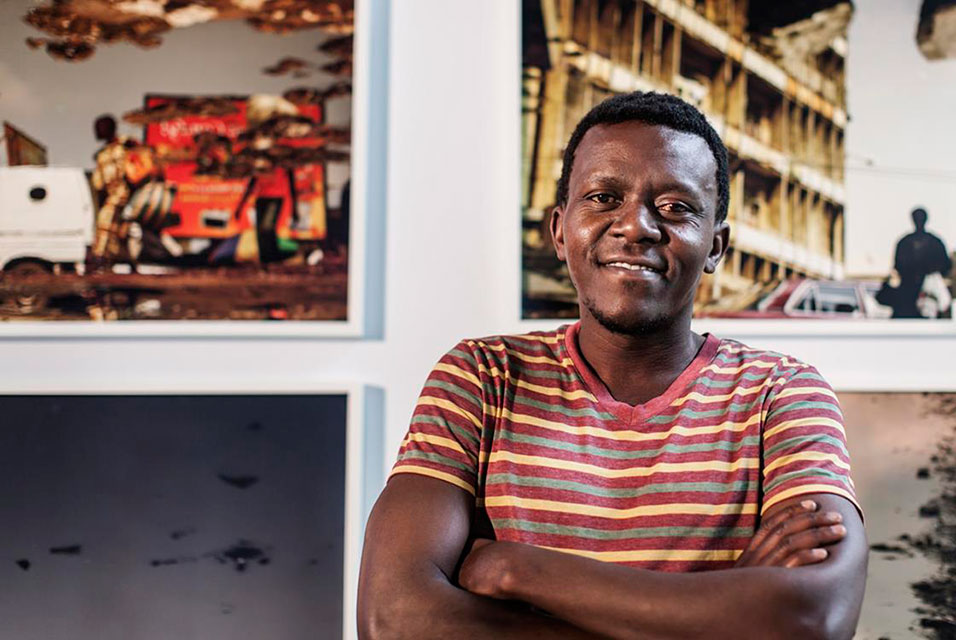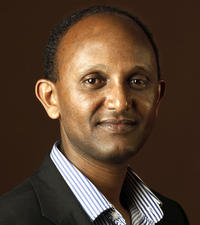By Daisy Nandeche Okoti
Published October 16, 2014

That actors are an important cog in the wheel of stage and screen arts is not up for debate; who, other than actors, brings a story and characters to life for a theatre performance or film production to be felt by an audience?
 Perhaps it was out of this realisation that East African Film Network in collaboration with the East African Community and German Development organization, GIZ, organised a workshop for actors from East Africa in the framework of the third annual Arusha African Film Festival in Tanzania in late September 2014.
Perhaps it was out of this realisation that East African Film Network in collaboration with the East African Community and German Development organization, GIZ, organised a workshop for actors from East Africa in the framework of the third annual Arusha African Film Festival in Tanzania in late September 2014.
RELATED: How to Inject Professionalism into East Africa’s Film Sector through Critical Appreciation
The Acting for Film workshop, that drew participants from Burundi, Kenya, Rwanda, Tanzania and Uganda, was held on the theme of integration of the East African Community region as a way of achieving the vision of having a prosperous, competitive, secure, stable and politically united bloc. The youth who attended this workshop were trained on various areas of acting for film with a view to inculcating in them an unmistakably East African identity they would promote in their work.
 The workshop trainers were Akpor Otebele of Arusha African Film Festival and Emmanuel Emesealu who teaches film and theatre arts at the University of Port Harcourt in Nigeria. They took the trainees through both group and individual activities with emphasis on discipline and the importance of time management. The workshop also taught the participants the meeting point between the role of the story-teller and the role of actors and went on to teach them skills that will help them interpret scripts that are presented to them. There was also emphasis on the move away from stereotypical characters.
The workshop trainers were Akpor Otebele of Arusha African Film Festival and Emmanuel Emesealu who teaches film and theatre arts at the University of Port Harcourt in Nigeria. They took the trainees through both group and individual activities with emphasis on discipline and the importance of time management. The workshop also taught the participants the meeting point between the role of the story-teller and the role of actors and went on to teach them skills that will help them interpret scripts that are presented to them. There was also emphasis on the move away from stereotypical characters.
RELATED: Youth Engagement and Socio-Cultural Integration in East Africa
“This training has been an eye-opener on the craft of acting. I now realise that I have not been acting professionally as my practice depended on my talent and the things I had read about or seen,” said Pretty Katende, a lead actress in a popular TV series in Uganda.
Liane Muhoza Mutaganzwa of Rwanda who currently starres in a Rwandan TV series and also works as a director and producer said, “There are so many things I did not know yet I had been an actor all along. This acting workshop has made me to fully understand what acting for film really is. I have learnt what the word ‘transition’ means in acting and that acting does not just involve one part of the body. This workshop has transformed me into a real actress.”
 While Peter Mbwago of Tanzania said the workshop had helped him to understand that as an actor “I must convincingly live in my character” and Queeny Wambui Mwangi said “The workshop has enabled me to view my work in a more professional way” and that “It has also helped me to distinguish between acting for stage and acting for film” , Drake Kayumba of Rwanda said “The workshop has made me a sharp actor, given me a brand-new acting experience as well as knowledge.”
While Peter Mbwago of Tanzania said the workshop had helped him to understand that as an actor “I must convincingly live in my character” and Queeny Wambui Mwangi said “The workshop has enabled me to view my work in a more professional way” and that “It has also helped me to distinguish between acting for stage and acting for film” , Drake Kayumba of Rwanda said “The workshop has made me a sharp actor, given me a brand-new acting experience as well as knowledge.”
RELATED: 3rd Arusha African Film Festival Almost Marred by Censorship and Intolerance
But is it going to be easier for these optimistic youngsters now that they have trained in acting for film? Will they now be better placed to deal with challenges such as unemployment, discrimination, sexual harassment, low pay and lack of appreciation and little support that abound in the communities in which they operate?
Kevin Ogolla from Kenya said that the lack of proper training schools is one of the biggest challenges that face actors in the region. He also mentioned that the payments that actors are given are sometimes really low and not standardized. Perhaps if there was a regulation board to look at all this, some of the problems that actors face such as not being able to live off their art would be solved.
 Hussein Butuyi from Burundi lamented that there isn’t much production work going on in his country and thus an actor can’t really live off acting.
Hussein Butuyi from Burundi lamented that there isn’t much production work going on in his country and thus an actor can’t really live off acting.
RELATED: Where are Children’s Stories in Africa?
This Acting for Film workshop at AAFF was the third in a series of capacity-building workshops that are being conducted by the East Africa Film Network as part of its broader vision which, like that of the East Africa Community, is socio-cultural, economic, political and regional integration. The main tools that EAFN is using to get people involved in the process of integration are film, cultural identity and the mass media. Previous trainings include a short film production workshop at Festival International Du Cinema et Audio Visual Du Burundi (FESTICAB) in Bujumbura and a scripting workshop at Zanzibar International Film Festival in Zanzibar. Other workshops in this series are slated to take place at Nile’s Diaspora International Film Festival (NDIFF) in Jinja (documentary filmmaking), Lola Kenya Screen in Nairobi (cinematography) and Mashirika African Film Festival in Kigali.
“We sincerely hope that these trainees will go back to their work places and preach the message of integration through their acting,” Elizabeth Wanyoike, a GIZ representative, said the closing ceremony of AAFF at which certificates were presented to workshop participants.
Wanyoike said that the cooperation between GIZ, EAC and EAFN is aimed at pushing for the socio-cultural and socio-political integration of the region through film in all its various aspects: acting, scripting, directing or production.





